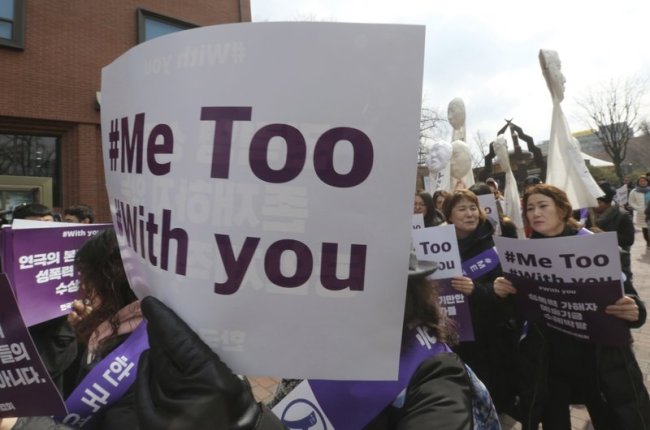Four in 5 Koreans said they support the #MeToo movement, according to survey results released Wednesday.
In a poll of 1,013 citizens and 70 gender policy experts conducted last month by the Korea Women’s Development Institute, 79.8 percent of the citizens said they support the movement against sexual harassment and assault.
Some 14.4 percent of the citizens said they did not support it.
Over 7 in 10 citizens said the public’s level of interest in sexual harassment, sexual violence and gender discrimination rose after the #MeToo movement began here.
In a poll of 1,013 citizens and 70 gender policy experts conducted last month by the Korea Women’s Development Institute, 79.8 percent of the citizens said they support the movement against sexual harassment and assault.
Some 14.4 percent of the citizens said they did not support it.
Over 7 in 10 citizens said the public’s level of interest in sexual harassment, sexual violence and gender discrimination rose after the #MeToo movement began here.

Sixty-two percent said Korean society is unfair to women, while 22.2 percent said it is fair to both men and women.
Seventy-seven percent of the women and 47.6 percent of the men said Korean society was unfair to women.
Gender policy experts said that while the #MeToo movement has served as momentum to build a consensus on structural gender inequality and discrimination across Korean society, it could be limited to sexual harassment and violence, and could develop into a conflict between men and women.
Policy efforts to improve the discriminatory organizational culture were most urgently needed, they said.
By Kim So-hyun (sophie@heraldcorp.com)











![[Hello India] Hyundai Motor vows to boost 'clean mobility' in India](http://res.heraldm.com/phpwas/restmb_idxmake.php?idx=644&simg=/content/image/2024/04/25/20240425050672_0.jpg&u=)








